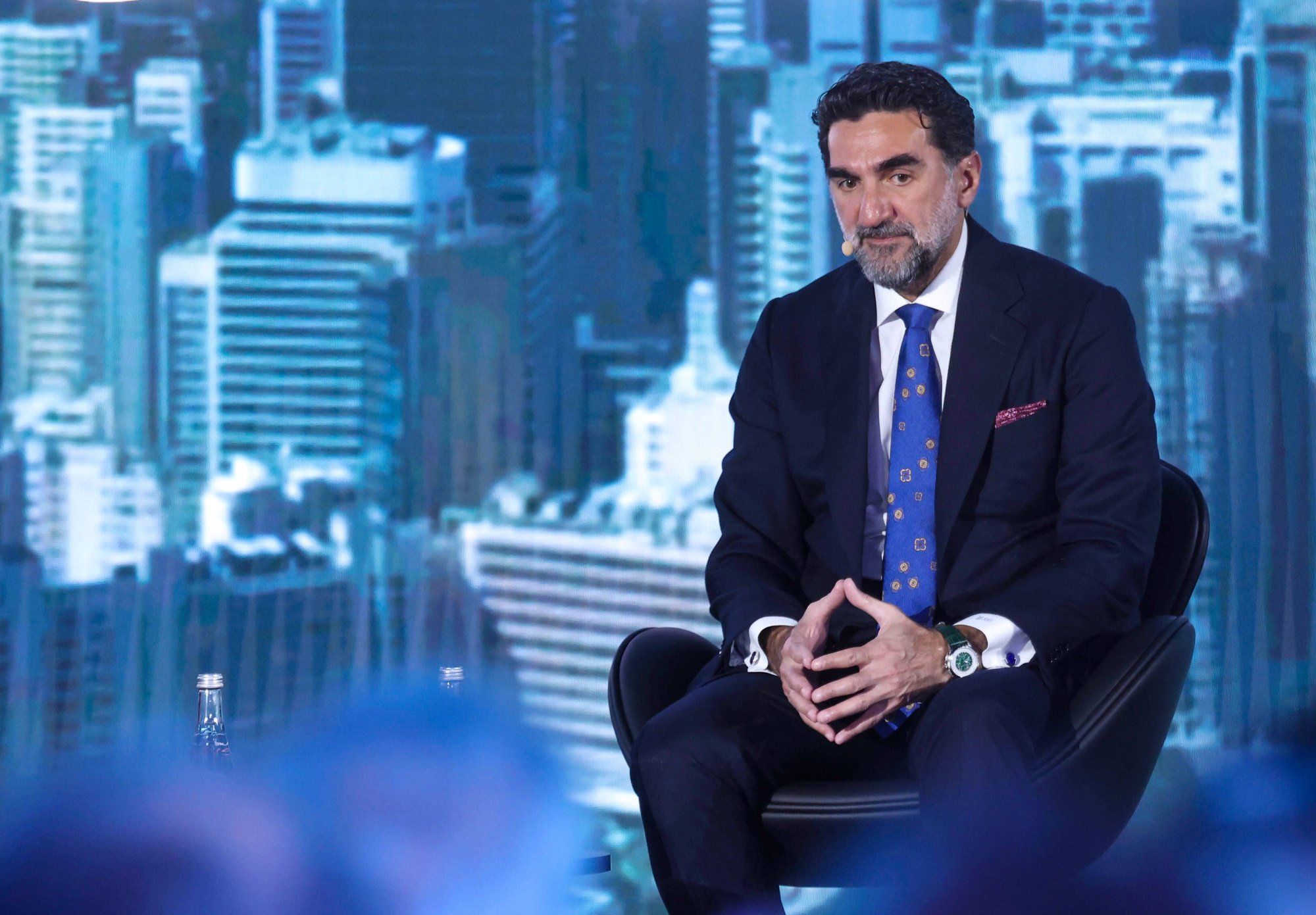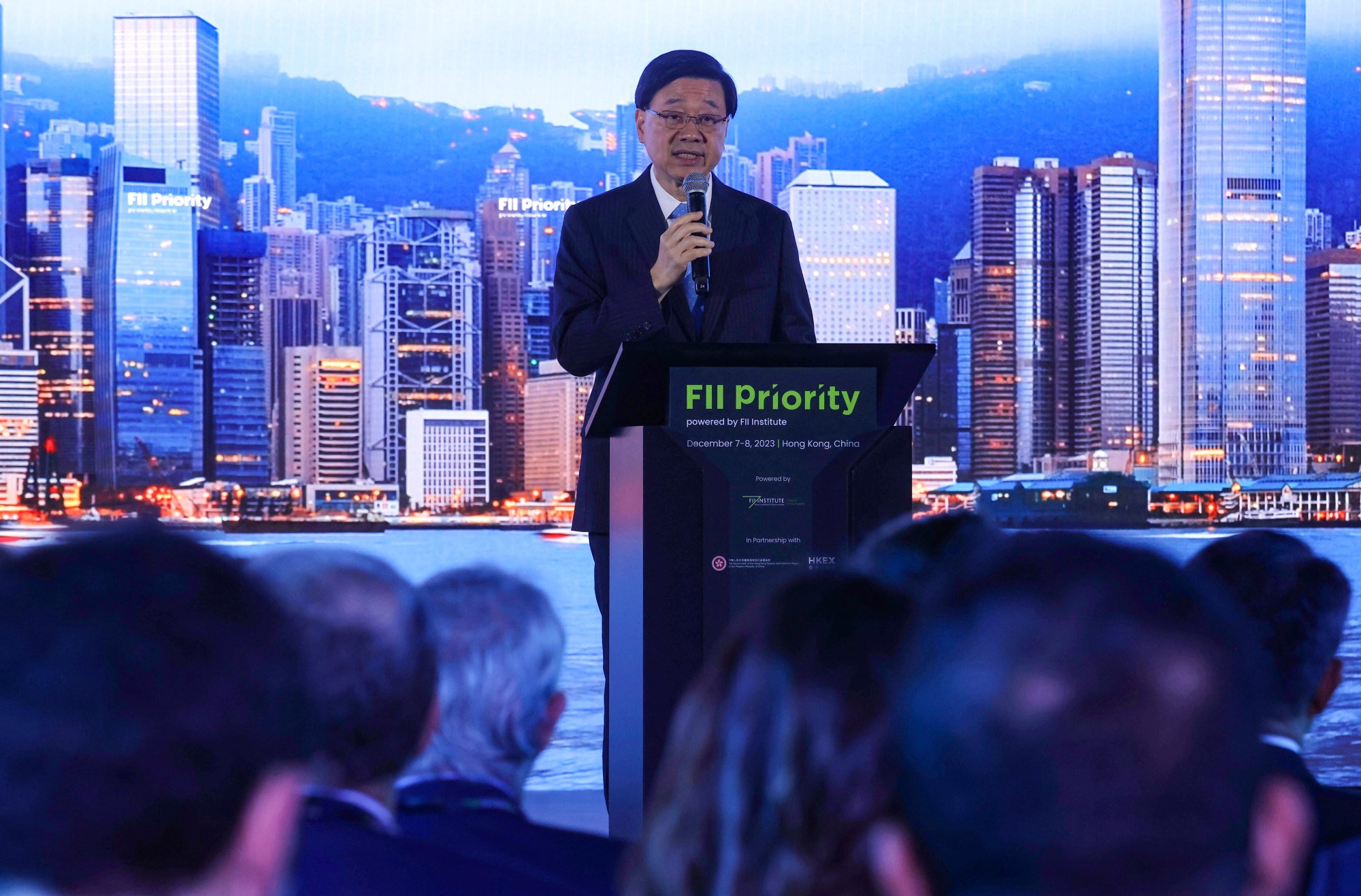[ad_1]
“That will lead us to a future where business success and social progress go [hand in hand].”

More than 1,000 policymakers, business leaders and investors have gathered in Hong Kong to discuss the trends that will impact the world’s future at the two-day FII Priority Hong Kong conference themed “Megatrends Shaping Humanity”.
Held in partnership with the city’s government and bourse operator Hong Kong Exchanges and Clearing (HKEX), the meeting comes as Saudi Arabia and China forge closer ties that are likely to shape global transformation.
The summit continues conversations that took place at the FII summit in Riyadh in October, seeking workable solutions to unlocking ESG flows to the Global South, driving global alignment on AI regulation, and investment for more equitable access to education and healthcare.
“Hong Kong is an international city, trade hub and innovation hub,” said Yasir Al-Rumayyan, the governor of PIF.
“[Hong Kong’s] proximity to not only China, but the rest of Asia” was the main reason the city was chosen to host the conference, he added. Previous editions of the conference have been held in Miami, New York and London.
The PIF, which manages US$700 billion of assets, will look to open new offices in mainland China and India, after setting up branches in Hong Kong, New York and London in 2022, he added.

In his speech, Hong Kong’s Chief Executive John Lee Ka-chiu said an AI supercomputing centre will be set up in the city next year to boost the innovation and technology sector.
“We will support hot, huge demand for computing power for R&D,” he said. “AI, robotics, as well as healthcare, will be the city’s primary area of focus.”
The world needs also hundreds of trillions of dollars of investment in the next few decades for the transition into a sustainable future, according to PIF’s Rumayyan.
Green transition alone is estimated to cost about US$100 trillion to US$300 trillion between now and 2050, according to a Barclays report in August. This is equal to one to three times the annual global gross domestic product of US$100 trillion.
The world is currently investing about US$1.4 trillion per year in clean energy and its supporting infrastructure, according to the International Energy Agency. Based on current policies, annual investments in low-carbon infrastructure are expected to increase by US$2.5 trillion. However despite this increase, Barclays estimates an investment gap of roughly US$5.3 trillion a year.
“The capital market in Hong Kong will help Middle East [nations] and companies to raise revenue for technology development in renewable energy and other sustainability projects,” said Laura Cha Shih May-lung, chairwoman of HKEX.
Hong Kong’s ASPACE to build Saudi aerospace sector from scratch
Hong Kong’s ASPACE to build Saudi aerospace sector from scratch
The city only needs to look at the opportunities emerging in Saudi Arabia for such diversification and also the opportunities presented by China and Asia, she added.
Richard Li Tzar-kai, chairman of telecoms provider PCCW and founder of insurer FWD, said the next generation would be able to enjoy better services from digitalisation.
Li said with AI, insurance and financial products and services can be customised for all strata of society. Digitalisation has enabled his company to serve people with different religious beliefs, pointing to the development of sharia products in Indonesia.
Other participants at the conference included Ronnie Chan, founder of Hang Lung Capital; Kevin Sneader, Goldman Sachs’ Asia-Pacific president; Fang Fenglei, founder and chairman of Hopu Investment Management; and Neil Shen, founder and managing partner of HongShan, formerly Sequoia China.
[ad_2]
Source link
